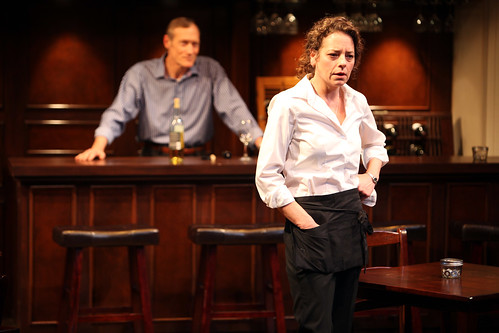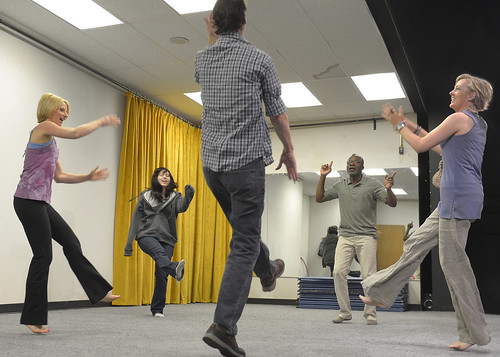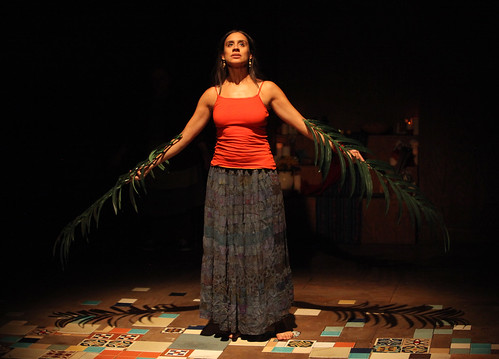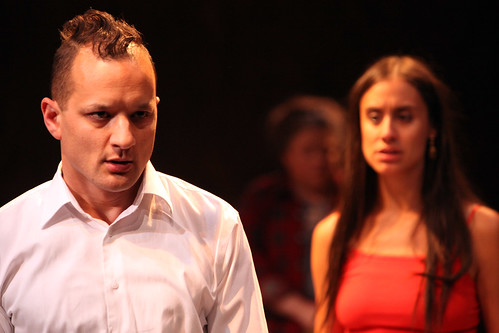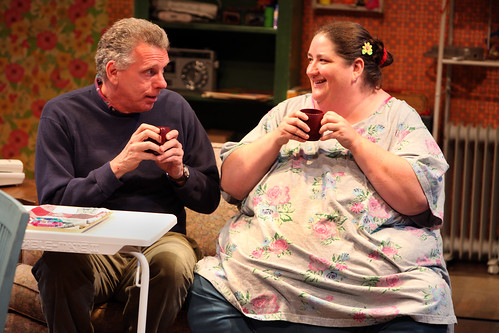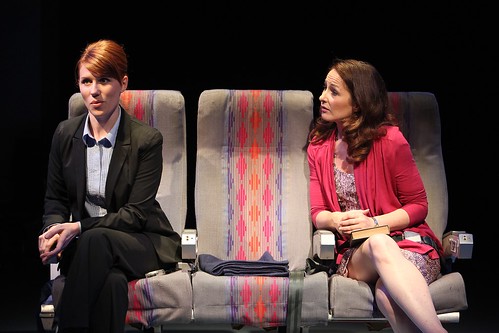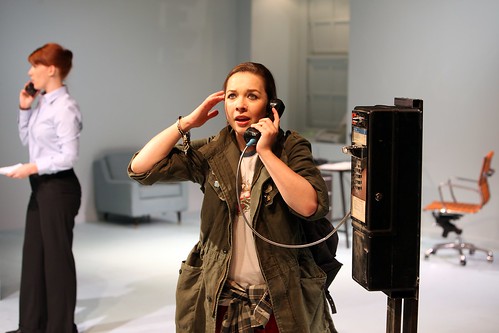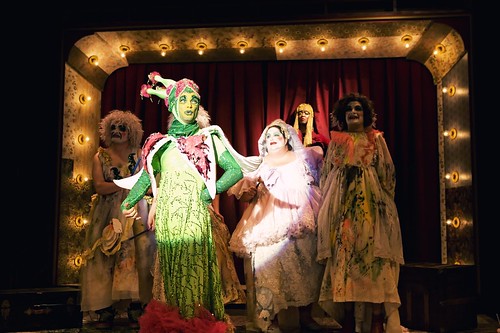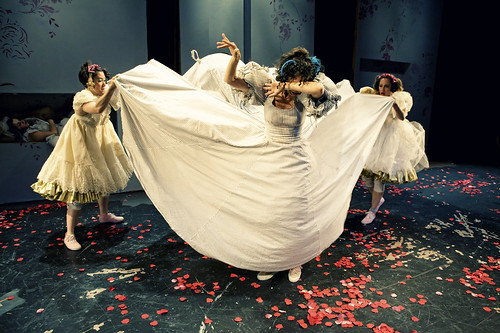
Bao (Jomar Tagatac, right) and Walter (Liam Craig) form a unique relationship in Julie Marie Myatt’s The Happy Ones at Magic Theatre. Below: Craig (left) and Gabriel Marin as Gary marvel at the perfection of their Southern California lives. Photos by Jennifer Reiley
At first the music is loud and fun. Norman Greenbaum’s “Spirit in the Sky” seems like the perfect audio accompaniment to a grown-up birthday party scene set in a Garden Grove, Califorina, suburban home circa 1975, where the swimming pool gleams and the neighbors all swing with martinis well in hand.
Then tragedy strikes, and there’s silence. The SoCal dream life suddenly has no fitting accompaniment…until it does, and that sound comes from another part of the planet – Vietnam to be exact. There’s a smattering of Creedence, of Paul Simon and Randy Newman. And when the good-time music returns, it’s in the form of Mungo Jerry’s “In the Summertime,” but the “living the dream” moment has passed, and it’s time for new songs and new chapters.
That’s the story of The Happy Ones, an achingly beautiful play by Julie Marie Myatt now at Magic Theatre. Of course there’s a lot more to the play than the songs and the sound design, but they acutely underscore the emotional ups and downs in director Jonathan Moscone’s shrewdly observed and deeply felt production.
That this is a play about grief shouldn’t dissuade you from seeing it. There’s a lot of comedy packed into the two-hour drama, some of it from the acuity of mid-’70s details in Erik Flatmo’s set and Christine Crook’s costumes. Some of it from the notion that sometimes, when life is at its bleakest, all you can do is laugh.
For protagonist Walter Wells (played with spaniel-like charm by Liam Craig), life is so good he can’t quite believe it. The house, the family, the hardware store he owns, the fun-loving friends, the pool – it’s all so dazzling, Walter can’t quite take it in. Standing outside the Unitarian Universalist Church where his best friend Gary (Gabriel Marin) is the minister, Walter says, “Beautiful women. Beautiful children. Great neighbors. Fantastic jobs. Gorgeous weather.” To which, Gary replies, “Praise God.” And Walter adds, “Praise California…Seriously. This is the dream right here. We got it.”
Such dreams have a way of not lasting. In a way, after everything collapses in on him, Walter remains caught in a world he can’t quite fathom. Just as the good life bedazzled and stunned him, so does grief. Gary can’t reach him, and neither can Gary’s girlfriend, the neighborhood divorcee and busybody, Mary-Ellen (a wonderfully overwhelming and gorgeous Marcia Pizzo). The only person who can cut through Walter’s numbness is a man linked to Walter’s tragedy, a complete stranger named Bao Ngo, a Vietnamese immigrant who was a doctor in his native land, and after the war has found himself far from home working nights in a suburban bakery.
Played with humor, dignity and tenderness by Jomar Tagatac, Bao is an unlikely savior, but what’s really interesting is that Walter turns out to be just as much a savior to Bao, though his unconventional methods include onion dip and barbecued steak with baked potatoes. Sometimes the American dream is only accessible if you can eat it.
The Happy Ones makes for a poignant journey and a nostalgic one if you happened to be alive in the ’70s. The ongoing quest for happiness as a destination (or even as an American birthright) hasn’t changed much in almost 40 years, which is probably why the unlikely relationship between Walter and Bao, bound by loss and grief and the darkest that life has to offer, is so moving. And it’s definitely why Myatt’s play, in its fleeting moments of happiness and hope, is so inspiring.
[bonus interview]
I talked to playwright Julie Marie Myatt for a story in the San Francisco Chronicle. Read the feature here.
FOR MORE INFORMATION
Julie Marie Myatt’s The Happy Ones continues through April 21 at Magic Theatre, Building D, Fort Mason Center, Marina Boulevard at Buchanan Street, San Francisco. Tickets are $22-$62. Call 415-441-8822 or visit www.magictheatre.org.




